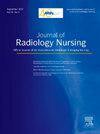2023年日本地震期间卫生保健专业人员的压力应对策略:一项横断面研究
Q3 Nursing
引用次数: 0
摘要
地震是最具破坏性的灾难之一,它使医疗保健专业人员感到压力。然而,尚不清楚地震幸存者保健专业人员使用哪些应对策略。目的探讨2023年台湾地震后继续工作的医护人员的应对策略。方法本横断面研究于2023年10月至2023年11月在乌克兰南部的一所大学医院进行。该研究的样本包括434名卫生保健专业人员。数据收集采用《个人信息表》和《应对地震应力量表》。采用适当的统计学方法对数据进行分析。结果医护人员应对地震应激的策略为积极重评(12.24±3.58)、寻求社会支持(11.96±2.71)和宗教应对(10.30±3.85)。生活在单独帐篷/集装箱(p = 0.036)和接受过心理支持(p = 0.026)的患者的正面重评价较高;然而,那些住在单独的帐篷/集装箱或家里的人(p = .001),没有一级亲属损失(p = .016),并在地震后立即离开该地区的人(p = .026)的宗教应对能力更高。寻求社会支持与地震相关的描述性特征之间没有显著差异(p > 0.05)。结论积极重评是2023年震灾后医务人员最常用的应对策略。从这个意义上说,建议进行实验研究,加强应对压力的策略。本文章由计算机程序翻译,如有差异,请以英文原文为准。
Health-Care Professionals’ Coping Strategies With Stress During the 2023 Earthquakes in Türkiye: A Cross-Sectional Study
Background
Earthquakes are among the most devastating disasters that cause health-care professionals to experience stress. However, it is not known which coping strategies earthquake survivor health-care professionals use.
Objective
The aim of this study is to investigate the coping strategies of health-care professionals continuing to work after the 2023 earthquakes in Türkiye.
Method
This cross-sectional study was conducted at a university hospital in southern Türkiye between October 2023 and November 2023. The sample of the study consisted of 434 health-care professionals. Data were collected using the Personal Information Form and the Coping with Earthquake Stress Scale. The data were analyzed using appropriate statistical methods.
Results
The findings of the study revealed that the strategies used by health-care professionals to cope with earthquake stress were positive reappraisal (12.24 ± 3.58), seeking social support (11.96 ± 2.71), and religious coping (10.30 ± 3.85). Positive reappraisal was higher among those who were living in individual tents/containers (p = .036) and received psychological support (p = .026); whereas, religious coping was higher among those who were living in individual tents/containers or at home (p = .001), did not have a first-degree relative loss (p = .016), and left the area immediately after the earthquake (p = .026). There was no significant difference between seeking social support and earthquake-related descriptive characteristics (p > .05).
Conclusions
Positive reappraisal was found to be the coping strategy most used by health-care professionals after the 2023 earthquakes in Türkiye. In this sense, it is recommended to conduct experimental studies that strengthen strategies for coping with stress.
求助全文
通过发布文献求助,成功后即可免费获取论文全文。
去求助
来源期刊

Journal of Radiology Nursing
Nursing-Advanced and Specialized Nursing
CiteScore
0.80
自引率
0.00%
发文量
95
审稿时长
57 days
期刊介绍:
The Journal of Radiology Nursing promotes the highest quality patient care in the diagnostic and therapeutic imaging environments. The content is intended to show radiology nurses how to practice with compassion, competence, and commitment, not only to patients but also to the profession of nursing as a whole. The journal goals mirror those of the Association for Radiologic & Imaging Nursing: to provide, promote, maintain , and continuously improve patient care through education, standards, professional growth, and collaboration with other health care provides.
 求助内容:
求助内容: 应助结果提醒方式:
应助结果提醒方式:


